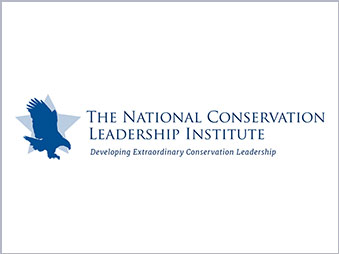The National Conservation Leadership Institute
Situation
In 2005, a significant national conservation federation approached CLA looking for advice on how to enhance the leadership capacity of high performers across natural resource-related organizations to address key challenges facing the conservation movement. Progress in protection and utilization of natural resources had been inhibited by several factors including unresolved value conflicts between those who fish and hunt and those whose interest is in passive use; declining public participation; engagement skewed along racial, geographic, and socioeconomic divides; and the impending retirement of a generation of conservationists with a thin pipeline of young, inexperienced potential successors.
CLA Approach
In response to the individual and collective needs of men and women who were in senior authority roles in public, industry, tribal, and NGO sector conservation and natural resource organizations. and in deep partnership with federation staff, CLA co-designed The National Conservation Leadership Institute (NCLI), an intensive, multi-episodic, leadership development fellowship program offered annually to a select group of thirty-six high potentials. The vision of the program extends well beyond training by challenging assumptions, teaching skills and tools, facilitating networking and strengthening confidence, preparing extraordinary leadership for the future. The program content is applied to real organizational challenges and structured to enable meaningful dialogue to occur among fellows. By changing the tenor, openness and depth of conversation happening in the room, the hope was to equip Fellows to be catalysts for this same quality of dialogue and relationship development back in their organizations in order to drive the conservation movement forward.
Results
CLA has facilitated one NCLI cohort annually, now having touched 360 fellows over 10 years. As reflected in feedback from sponsors, Fellows return with a greater understanding of the complexity of their environment and tools to make progress on key challenges so that the size of their impact better matches their level of passion and commitment. As the NCLI Executive Director said this year, “predictions a decade ago are proving true. Our profession needs to increase its leadership capacity. We are witnessing the NCLI helping us to do just that by increasing our professionals’ capacity to exercise a different kind of leadership – leadership that is more adaptive, creative, courageous and collaborative, adding power to the system.”

